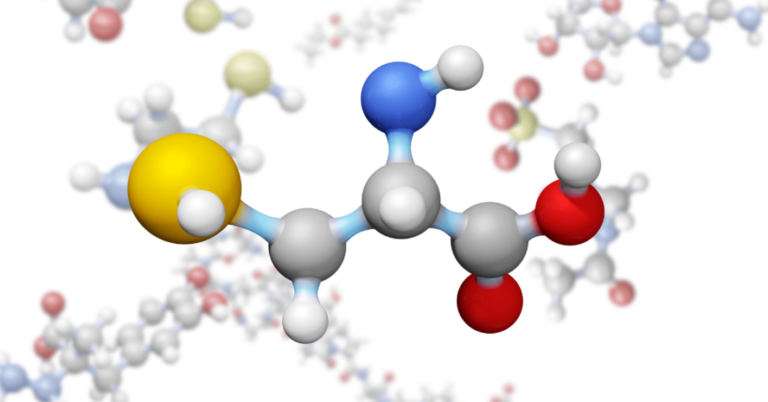Branched-Chain Amino Acids Side Effects Liver Health
Some links on this page are affiliate links (including Amazon Associate links) which means that, if you choose to make a purchase, we may earn a small commission at no extra cost to you. We greatly appreciate your support!
Amino acids, the building blocks of proteins, are well-known for their many health benefits. They help with muscle growth and brain function, making them essential for overall well-being. While they are usually safe when taken in the right amounts, there is growing concern about how dietary intake of branched-chain amino acids might affect liver health. In this guide, we’ll explore the effect of BCAA supplementation on liver function, look at possible side effects, and provide tips on how to use supplements safely.
The Liver’s Role in Amino Acid Metabolism
The liver is like the body’s powerhouse, handling many important tasks, including processing amino acids. When you eat proteins, they break down into amino acids, which then enter your bloodstream and head to the liver. The liver takes charge of these amino acids, managing their levels in the body and turning them into proteins or other necessary compounds.
Potential Side Effects of Amino Acids on Liver Health
While amino acids are usually safe when taken in the right amounts, too much or certain conditions can cause issues, especially with liver health. Here are some things to keep in mind:
Excessive Intake: Taking too many amino acids, especially through supplements, can stress the liver. The liver has to process these excess amino acids, and if there are too many, it can get overwhelmed, potentially affecting liver function.
High-Protein Diets: Eating a lot of protein, which is full of amino acids, can sometimes lead to liver problems. While protein is important for muscle building and overall health, having too much for a long time might strain the liver and cause issues.
Individual Sensitivities: People who already have liver problems or weak liver function might be more at risk from taking too many amino acids. It’s important for them to talk to a healthcare professional before starting any new supplements.
Amino Acids in the Treatment of Liver Disease
While too many amino acids can sometimes be bad for liver health, there can also be beneficial effects of bcaas in treating certain liver problems. In medical settings, amino acid supplements are often used to support liver function and manage liver disease. Here’s the role of branched-chain amino acids (BCAAs) in treating end-stage liver disease:
- Hepatic Encephalopathy Management
Hepatic encephalopathy is a serious liver disease complication that causes confusion and mental changes because the liver can’t detoxify ammonia properly. Intake of BCAA like leucine, isoleucine, and valine helps reduce symptoms by competing with other amino acids to enter the brain. This helps lower ammonia levels in the brain, improving mental clarity and cognitive function.
- Nutritional Support
Liver disease can cause malnutrition and muscle loss because the body can’t absorb and use nutrients well. Amino acid supplements provide the essential building blocks for protein, helping repair tissues and prevent more muscle loss in patients with liver problems. By offering amino acid nutritional support in patients, doctors can help improve the overall health of patients with liver disease.
- Liver Regeneration
In cases of severe liver injury or after a liver transplant, amino acids are crucial for tissue repair and regeneration. Essential amino acids like arginine and glutamine promote the growth of liver cells and speed up healing after liver damage. By supplying the necessary materials for cell growth and repair, BCAA intake can help restore liver function and aid recovery.
- Reducing Oxidative Stress
Liver disease often leads to increased oxidative stress, which is an imbalance between harmful reactive oxygen species (ROS) and the body’s ability to neutralize them. Amino acids like cysteine and glycine are precursors for glutathione, a strong antioxidant that helps neutralize ROS and protect liver cells. By boosting glutathione levels, amino acid supplements can reduce oxidative stress and slow the progression of liver disease.
While it’s important to be aware of the potential side effects of long-term BCAA supplementation on liver health, they can also be very beneficial in treating chronic liver disease. From managing hepatic encephalopathy to supporting nutrition and promoting liver repair, amino acids offer significant benefits. When used properly under medical supervision, amino acid supplements can complement standard treatments and improve outcomes for patients with liver disease.
The Role of BCAA Supplementation in Liver Health
Branched-chain amino acids (BCAAs), like leucine, isoleucine, and valine, are popular in sports nutrition and muscle building. Recent research also shows they can impact liver health, both positively and negatively. It’s important to understand how BCAA supplements affect the liver if you want to benefit from these nutrients while keeping your liver healthy.
- Muscle Preservation and Energy Metabolism
BCAAs are special because they can be used directly by muscle tissue, without going through the liver. This helps preserve muscle mass and support energy metabolism, especially during dieting or intense exercise. BCAAs help build proteins and create energy, maintaining muscle strength and providing an alternative energy source to glucose.
- Alleviating Hepatic Encephalopathy
Treatment with branched-chain amino acids is known to help manage hepatic encephalopathy, a brain disorder caused by liver problems. BCAAs compete with other amino acids to enter the brain, reducing the amount of toxic substances like ammonia. This helps improve mental clarity and reduce cognitive issues in people with this condition, making BCAA supplements a valuable addition to standard treatments.
- Potential Concerns with Excessive Intake
While BCAA supplementation could benefit liver health, taking too much can be harmful. High doses, especially without enough protein or calories, can stress the liver by increasing nitrogen and ammonia levels. People with liver issues, like cirrhosis or liver failure, should be cautious and consult a healthcare professional before using BCAA supplements.
- Balancing Supplementation with Dietary Intake
To get the most out of BCAA supplements for liver health, it’s important to balance them with your diet. Whole foods like lean meats, dairy, and legumes provide BCAAs along with other nutrients. Supplements can help you reach specific intake levels conveniently. Combining BCAA-rich foods with supplements in a balanced diet can help maintain liver health and maximize the benefits of BCAAs.
BCAA supplements can be helpful for liver health but need to be used carefully. They help with muscle preservation, energy metabolism, and managing hepatic encephalopathy, but excessive intake can be risky. Understanding how BCAAs affect the liver and using them wisely can help you optimize your nutrition while protecting your liver.
Maintaining Liver Health While Consuming Amino Acids
Even though there can be some side effects, moderate consumption of branched-chain amino acids from natural food sources is usually safe for most people. Here are some tips for keeping your liver healthy while including amino acids in your diet:
Balanced Diet: Eat a balanced diet full of whole foods like lean proteins, fruits, vegetables, whole grains, and healthy fats. This gives you a variety of amino acids and essential nutrients that support overall health and liver function.
Moderate Supplementation: If you’re thinking about taking amino acid supplements, choose products from reputable brands and stick to the recommended doses. Don’t overdo it, and talk to a healthcare professional if you have any concerns or existing health issues.
Hydration: Drink plenty of water throughout the day to stay hydrated. Good hydration supports liver function and helps flush out metabolic waste, including the byproducts of amino acid metabolism.
Regular Exercise: Regular physical activity promotes overall health and supports liver function. Include a mix of cardio, strength training, and flexibility exercises in your routine to keep your liver and metabolism in good shape.
Monitor Liver Health: If you’re worried about your liver health or are at risk for liver problems, consider regular check-ups and blood tests. Early detection of liver issues allows for timely treatment and better management.
Frequently Asked Questions
Do amino acids effect liver?
Yes, amino acids can affect liver health. While they are essential for many body functions, taking too many amino acids, especially through supplements or high-protein diets, can strain the liver. This can cause liver stress or make existing liver problems worse.
However, branched-chain amino acids (BCAAs) can help manage liver diseases like hepatic encephalopathy and support liver function when used correctly under medical supervision. So, the effect of amino acids on the liver depends on how much you take, your health status, and your overall diet.
What are the risks of taking amino acids?
The risks of taking amino acids include possible liver strain from too much intake, especially from supplements, and interactions with some medications or health conditions. To reduce these risks, use amino acid supplements carefully, follow recommended dosages, and talk to a healthcare professional if you have liver or kidney issues.
Who should avoid amino acids?
People with existing liver or kidney problems should avoid taking too many amino acids, especially through supplements because it can strain these organs. Also, if you take medications or have other health issues, check with a healthcare professional before using amino acid supplements to avoid possible interactions or side effects.
Is it OK to take amino acids everyday?
It is generally safe for most people to get dietary amino acids from natural foods every day. However, taking too many amino acid supplements daily can be risky, especially for liver and kidney health. Stick to recommended dosages and consult a healthcare professional before starting any supplement routine.
Conclusion
Amino acids are essential for many body functions, but it’s important to be aware of their impact on liver health. While eating foods rich in amino acids is generally safe, taking too much or using supplements can be risky, especially for people with liver problems. To stay healthy, focus on a balanced diet, drink plenty of water, exercise regularly, and keep an eye on your liver health. Always talk to a healthcare professional for advice that’s right for you.





